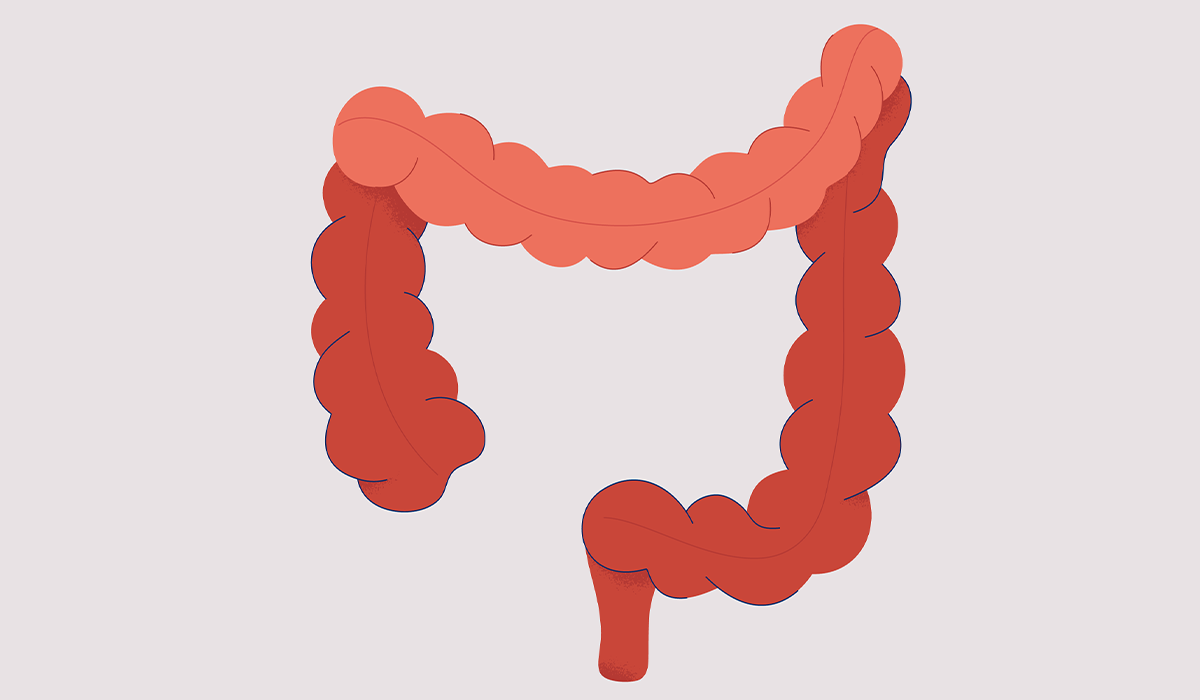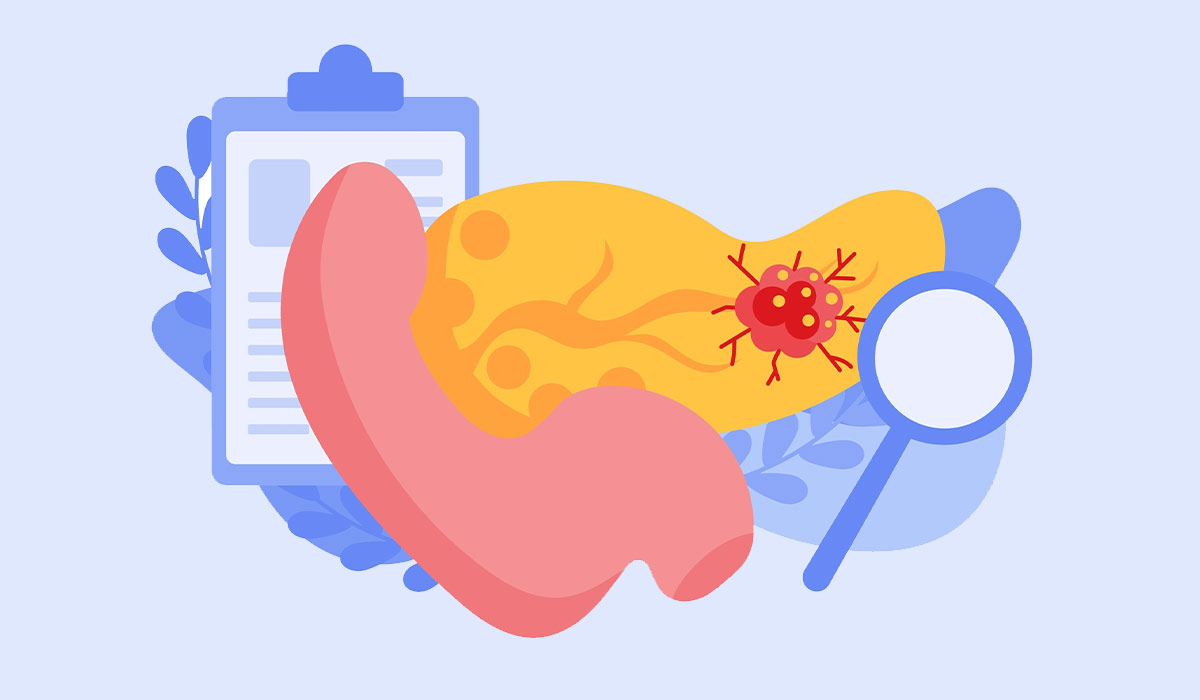Irritable bowel syndrome is the most common gastrointestinal disorder. It encompasses a variety of digestive problems and symptoms due to changes in bowel movements, which are usually uncomfortable and can get in the way of everyday activities.
IBS symptoms don't cause visible damage to the digestive tract and may come and go, which poses a diagnostic challenge. Because digestive issues tend to subside over time, IBS is often mistaken for indigestion, food poisoning, or allergies. You may delay your doctor's visit thinking you have eaten something you shouldn't, hence the bloating, abdominal pain, diarrhea, and fatigue. But unlike foodborne illness triggered by certain foods, IBS is a long-term condition not resolved by simply avoiding specific trigger food. The rule of thumb is that the symptoms must persist for three months to be considered IBS or another long-term condition. If you are experiencing gastrointestinal problems that come and go in a few months or longer, it is a perfect reason to schedule a visit with a health professional to discuss your symptoms.

Scientists have yet to find the exact causes of irritable bowel syndrome. Some researchers believe that it develops due to a combination of specific factors![]() which may differ from person to person. Another hypothesis is that it occurs because of changes in how the gastrointestinal tract move and contracts.
which may differ from person to person. Another hypothesis is that it occurs because of changes in how the gastrointestinal tract move and contracts.
Many experts think that IBS results from problems related to the brain's and gut's connection. If they cannot interact with each other appropriately, the digestive system may not be able to perform its tasks in an optimal fashion. As a result, food may move too slowly or quickly through the digestive tract, causing gastrointestinal issues such as discomfort, abdominal pain, constipation, and bloating.
Although it is unknown what causes IBS, several risk factors and triggers have been identified. People who suffered from specific health problems in the past or experienced stressful life events have been observed to develop IBS more often than others. Age and sex also seem to play a role in developing this condition, as females and people younger than 50![]() are often found among IBS patients.
are often found among IBS patients.
According to the experts, the most probable risk factors include the following:
Some research also suggests that irritable bowel syndrome can be linked to genetics, but more high-quality studies are needed to confirm this claim. For now, environmental factors, especially one's lifestyle, are considered the most probable factors leading to IBS.
The most common symptoms of IBS are abdominal pain and uncomfortable sensations due to changes in bowel movements. Symptoms may differ from person to person, but they usually include:
In some people, IBS is of a recurring character, while others experience symptoms without a discernible pattern on a day-to-day basis. However, regardless of the frequency of symptoms, it is a chronic condition which means it can persist for a long time, even several years.
It is uncommon for irritable bowel syndrome to lead to complications. Additional health problems caused by IBS usually develop if gastrointestinal issues are left untreated or are not managed in accordance with a doctor's advice. These may include mood disorders that can occur due to anxiety or depression caused by IBS.
In addition, IBS patients who experience chronic diarrhea and constipation may develop hemorrhoids![]() . Fortunately, this can be avoided thanks to adequate treatment plans and management strategies recommended by a reliable health professional.
. Fortunately, this can be avoided thanks to adequate treatment plans and management strategies recommended by a reliable health professional.
Doctors diagnose irritable bowel syndrome based on your description of symptoms, physical exam, family, and medical history. During a doctor's visit, you will be asked how long you are experiencing digestive problems and when they are occurring. If a doctor suspects that there may be several possible causes, they will order tests and exams such as blood and stool tests or colonoscopy.
A blood test involves taking your blood sample to a lab and is one of the most common tests to perform to rule out many medical conditions. In the case of IBS, it helps rule out infections, anemia, and other digestive disorders.
To perform a stool test, you will need an adequate container for catching and storing a stool sample. You may receive one from your doctor or purchase it at a drugstore. Your doctor will also give you instructions on properly using the kit and where to deliver it.
Stool tests are commonly used to determine if there is blood in the stool or signs of viruses, bacteria, and germs that may cause infections and diseases.
In addition to blood and stool tests, a doctor may order a colonoscopy![]() to have a better understanding of the state of the patient's colon. In this procedure, a health professional puts a tube equipped with a light and camera into a person's rectum, which is then moved to the colon. Colonoscopy allows doctors to see the inside of the large intestine (colon), which helps rule out certain health conditions in people suspected of having IBS.
to have a better understanding of the state of the patient's colon. In this procedure, a health professional puts a tube equipped with a light and camera into a person's rectum, which is then moved to the colon. Colonoscopy allows doctors to see the inside of the large intestine (colon), which helps rule out certain health conditions in people suspected of having IBS.
Treatment plans for people with IBS depend on the person's symptoms, the severity of pain, triggers, and specific needs. There are several ways to combat IBS, including lifestyle and diet changes, medications, and increased physical activity. Not all methods work for everyone, but in most cases of IBS patients, an adequate personalized strategy is found thanks to a doctor's support.
Thus said, the conventional treatment for irritable bowel syndrome encompasses the following:
Changes in diet:
Lifestyle changes:
Medication:

The low FODMAP diet![]() is a special diet recommended for IBS patients. FODMAPs are certain carbohydrates that require more energy to digest appropriately, putting more strain on the digestive system than other carbohydrates. People with IBS may benefit from trying this diet which aims to reduce the number of these carbohydrates.
is a special diet recommended for IBS patients. FODMAPs are certain carbohydrates that require more energy to digest appropriately, putting more strain on the digestive system than other carbohydrates. People with IBS may benefit from trying this diet which aims to reduce the number of these carbohydrates.
Foods that contain FODMAPs include:
It is recommended to try out a low FODMAP diet for at least a few weeks to see if the symptoms improve. If the diet brings promising results, IBS patients may slowly add foods containing FODMAPs. After some time, it is possible to enjoy foods containing FODMAPs without experiencing IBS symptoms.
IBS is not life-threatening, and it doesn't shorten life span. Its symptoms can lead to discomfort and distract from daily activities, but they are not severe enough to justify seeking a medical emergency. However, some people may experience severe symptoms along with digestive issues, which may indicate a dangerous health condition. These symptoms may include bleeding, weight loss, severe pain, and fever.
IBS symptoms can be misleading as they don't cause visible damage to the digestive tract. It often results in incorrect self-diagnosis. Indigestion, food poisoning, and allergies may mimic symptoms of IBS. But it's important to note that IBS is a long-term condition, requiring symptoms to persist for at least three months to consider it above other health conditions.
The exact causes of IBS remain unclear, but it's thought to arise from the intricate brain-gut connection![]() , stress, and issues with gastrointestinal movement. Numerous risk factors have been identified, including past physical or sexual abuse, stressful childhood events, mental health disorders, food sensitivities, bacterial infections, being a female, age under 45, and antibiotic exposure.
, stress, and issues with gastrointestinal movement. Numerous risk factors have been identified, including past physical or sexual abuse, stressful childhood events, mental health disorders, food sensitivities, bacterial infections, being a female, age under 45, and antibiotic exposure.
It's essential to seek medical attention for rare severe symptoms like bleeding, substantial weight loss, intense pain, and fever. While IBS isn't life-threatening, its impact on daily life and comfort warrants appropriate management and care.
Table of Contents

A gastroenterologist deals with the diagnosis and treatment of diseases of the human digestive system. What does a visit to… read more »

Flatulence is the excessive accumulation and release of gases. See what are the causes of this condition. What to do… read more »

Ehlers-Danlos Syndrome is a group of diseases with a genetic basis. Learn all the symptoms associated with EDS. Find out… read more »

Diarrhea is usually a symptom of a gastrointestinal infection. It is characterized by excessive excretion of stool with a loose… read more »

C. Diff is the abbreviated name for the bacteria that causes infections in the gut. It causes diarrhea and other… read more »

The colon is part of the large intestine and is essential for the digestive system. Some signs may indicate problems… read more »

Pancreatitis is an inflammation of the pancreas. It usually presents itself with abdominal pain and can be extremely dangerous. What… read more »

Hemorrhoids are swollen veins in the anal canal. They are accompanied by various symptoms – how to recognize them? What… read more »

Giardiasis is a disease that causes symptoms of diarrhea. Some people are at greater risk of a severe course and… read more »